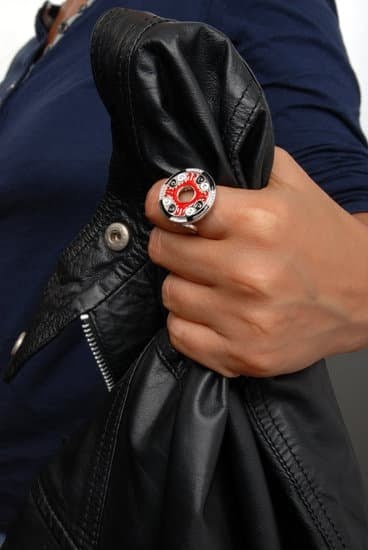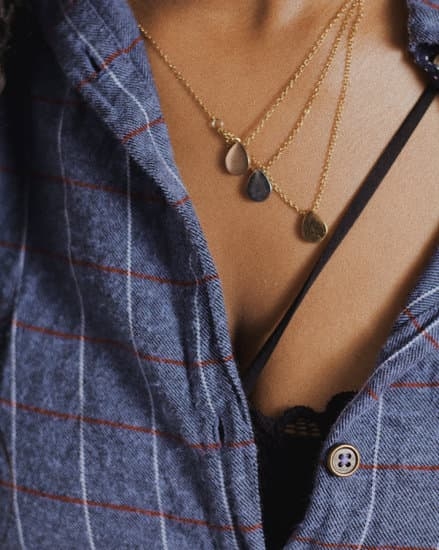Introduction
Making custom jewelry tags helps you to differentiate your pieces and stand out in a competitive marketplace. Many shoppers are drawn to pieces that have special touches like custom tags, making them great for creating a memorable customer experience. Plus, it’s also cost effective way to give your jewelry an extra touch of personalization.
Creating custom jewelry tags is simple and can be done from the comfort of your own home using basic supplies like polyester tags and stamps or stickers. You’ll need to determine the size and dimensions of your desired tag and procure the appropriate materials: polyester or satin ribbon or paper for attaching to the item, special ink for printing details, and decorative accents such as ribbons or beads for added flair, if desired. Once you’ve created your designs, start by affixing each tag to its designated piece with either glue or staples. If you’re opting for staples, make sure they are placed into the bottom side of the card so they don’t cause any discomfort when worn on clothes. From there, all that’s needed is marking down product details in permanent ink on each tag,. Add any decorative elements if necessary then place into packaging before sending off to their new owners!
Gather Your Supplies
The supplies needed for making custom jewelry tags include a medium-strength adhesive such as craft glue, craft scissors and/or blade, cardboard or thick paper, pen and/or marker, ribbon or string. To create the tags, cut two pieces of cardboard or thick paper into shape. For example, create an oval tag shape by drawing an oval on the first piece of card or paper and then carefully cutting around it. For a heart or flower shape, draw the desired outline onto the surface, making sure to keep inside the pencil lines when you cut it out. Repeat this process with the second piece of card or paper so you have two identical shapes. Cut lengths of ribbon or string which will be used to attach them to your jewelry pieces. Finally, use a pen or marker to write any text you want presented on each tag – such as your name, initials, phrase – whatever tickles your fancy! Now all you have to do is lightly glue one tag to each side of your jewelry item and allow it to dry thoroughly before wearing it proudly!
Step-by-Step Guide
Step 1: Gather your materials. You will need jewelry tags, stamps and punches, string, grommets or Washi tape. If you’re using stamps and punches, select the design that best reflects your personal style and the item you are tagging. For example, when making a tag for earrings you may choose to use a stamp featuring a pair of earrings.
Step 2: Print out the desired design on paper or parchment paper. Use scissors to carefully cut out the design and punch a hole in one side of it where the string is to be attached. For earrings, pendants or necklaces it’s best to create two tags with one hole each.
Step 3: Thread the string through the hole and tie off securely on each side with a slip knot. This adds extra durability and ensures that the string will not pull through and break free from either side of the tag.
Step 4: You can use grommets or Washi tape (in various colors if desired) at this point to secure both ends of the tag onto your piece of jewelry. This further reinforces its connection to your item as well as adding another layer of decoration. For example – for pendant-style pieces consider using multiple colored grommets spaced strategically around the edges rather than just covering one area with Washi tape.
Finishing Touches
Adding color and texture to custom jewelry tags is the perfect way to give them a unique look. Here are some creative techniques for adding detail and decoration to your jewelry tags.
•Painting or Coloring: Painting the tags directly with colored nail polish or acrylic paint mixed with varnish can add a subtle or dramatic look to your jewelry tags. You can also use an airbrush, markers, colored pencils, and other painting supplies to create custom designs on the tags.
•Stamping: Steel stamps can be used to stamp words, letters, symbols, and dates into the tags that become part of their design. Stamping—especially with metal stamps—also adds texture to the tag.
•Burning: Burning single lines along an edge of the tag or burning dots in a pattern will create permanent contours in silver, steel, or brass that won’t rub off easily.
•Texturizing: If you have access to a rolling mill, you can texturize your custom jewelry tags through various rolling patterns. Alternatively, knurling tools which are designed for professional metalsmithing work are used as another technique for adding raised bumps as embellishments on jewelry makers’ pieces like rings and pendants too.
•Oxyacetylene Torching: Among more extreme methods of decoration is oxyacetylene torching which uses different levels of heat to burn off a thin layer of metal from each piece but creates beautiful burned finishes that won’t wear away over time. This method also works great on copper and bronze alloys as well as steel allowing for plenty of artistic flexibility in creating designs with heat settings such as feather designs or flower petals etc!
Adding Security
Creating custom jewelry tags is a fun and creative way to add a unique touch to any piece of jewelry. The best way to do this is by engraving the tags with both client and designer information. This will help ensure that the owners of the jewelry can identify who made it and put their mind at ease knowing that their piece is secure.
When it comes to actually making the engraved tags, you have a few different options. You can either go through an online vendor or contact local sign-making companies for special orders. When placing your order, be sure to provide them with all necessary information such as client name, designer contact information, size, shape, material type and finish. These details should also be included on the actual tag itself for further security.
You may also want to include some other features like special symbols or logos on custom tags. Make sure these are designed properly before sending them off to be engraved so they don’t end up looking sloppy or defaced in any way. Additionally, consider adding an antireflection coating or tarnish-protected layer so that your custom tags last longer. After getting these details sorted out, your custom jewelry tags are ready for use With these securely attached engraved tags in place you can be sure that your client’s jewelry pieces are uniquely identified and safe from theft!
Wearable Art
Creating custom jewelry tags is an exciting way to express yourself and add some personal flair to your style. It is important, however, that you ensure your custom tags are durable enough to withstand regular wear and tear and adequately protect the items that they tag. One way to make sure your custom tags are lasting pieces of wearable art is by laminating them. Laminating provides extra protection from moisture and other elements that can degrade the material and make it brittle over time. Another good measure for protecting the longevity of jewelry tags is using waterproof ink for printing or stamping the design on cardstock or fabric. However, if you are fabricating jewelry findings such as clasps, clamps, chains and eyelets from metal, it is recommended to use a sealant or rust-proof coating on these components to prevent any corrosion or tarnishing in the future. By following these easy protective measures, you can ensure your one-of-a-kind design remains intact for many years to come!
End Result
When you’ve finished making your custom jewelry tags and you want to send them out into the world, there are several options for distribution. You could opt to set up an online store and promote it through social media or by finding other ways to market your products. You might also choose to attend local fairs and markets in order to reach customers directly and establish relationships with them. Furthermore, you could partner with retail stores in order to have your pieces carried in their shops, depending on their agreement with you and your budget. Additionally, you can use word of mouth marketing as a way of increasing awareness of your brand. By talking to potential customers at conferences or events related to handmade jewelry, giving out samples and asking people if they’d be willing to distribute catalogues or brochures, you may be able to widen the reach of your custom tags. Finally, give thought about how easy it would be for people living abroad to purchase from you—consider developing an international shipping policy so that no opportunity is missed!
Conclusion
The process of making your own custom jewelry tags can be incredibly rewarding. Not only does it allow you to express your creativity and work on something unique, but it also offers the chance to connect with a wider group of jewellery-making enthusiasts. The internet is full of resources for those interested in creating their own custom jewelry tags. Forums are great places to connect with more experienced jewellers and ask questions about tools, techniques, and supplies. There are also tutorials available for beginners who may want assistance getting started. No matter what your current level of skill or experience is, crafting custom jewelry tags can be an enjoyable creative activity that allows you to explore new techniques, materials and designs.

Welcome to my jewelry blog! My name is Sarah and I am the owner of this blog.
I love making jewelry and sharing my creations with others.
So whether you’re someone who loves wearing jewelry yourself or simply enjoys learning about it, be sure to check out my blog for insightful posts on everything related to this exciting topic!





